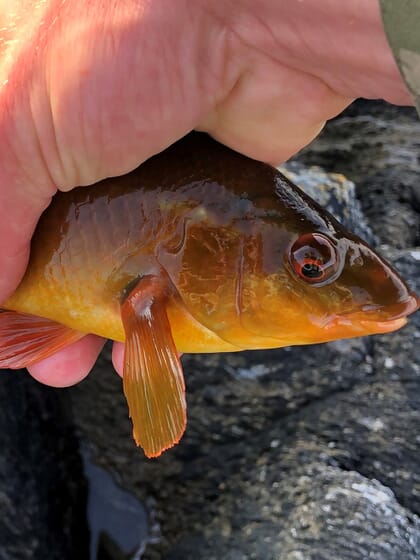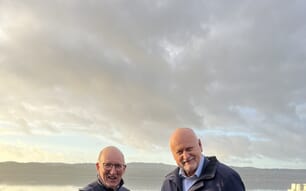
© Rob Fletcher
The new measures, which were announced today by Scotland’s Rural Economy Secretary, Fergus Ewing are to be introduced following a recent consultation with the industry and will be brought into effect from 1 May 2021. They follow concerns from conservation organisations and recreational anglers about the possible ecological impacts of the harvesting of wild wrasse from around the UK coast for use as cleaner fish in Scottish salmon farms.
Under the new rules, wrasse fishers will have to meet certain criteria, show they have an appropriate relationship with an aquaculture business and have a proven track record to obtain a permit for harvesting wild wrasse.
The move is expected to improve management of the fishery, provide clear instructions to all those involved, and secure better reporting of activity and data from fishers to Marine Scotland.
Ewing said: “These measures will support the sustainable growth of our valuable aquaculture industry while also maintaining the right balance across our economic, environmental and social responsibilities.
“Mandatory measures for wild wrasse harvesting will help to maintain healthy stocks of this fish which is so important for treating and controlling lice in our salmon farms while improvements to the way we consider regulation of fish farms will ensure the impact from interactions with iconic wild salmon and sea trout is reduced.
“We will work with fishers to help ensure reasonable fishing opportunities remain, that there is access for new entrants to wrasse fishing and that there is a fair recruitment system that takes into account sustainability and the aspirations of fishermen who may wish to diversify. This is an area we will continue to develop. Measures will be kept under review and we will look to refine them as more evidence, data and technology becomes available.
“As we look ahead to economic recovery and the development of the Blue Economy, sustainability must be at the heart of what we do to ensure future generations can enjoy all of the beauty and nature that Scotland has to offer whilst safeguarding jobs in some of our most rural and fragile communities.”



